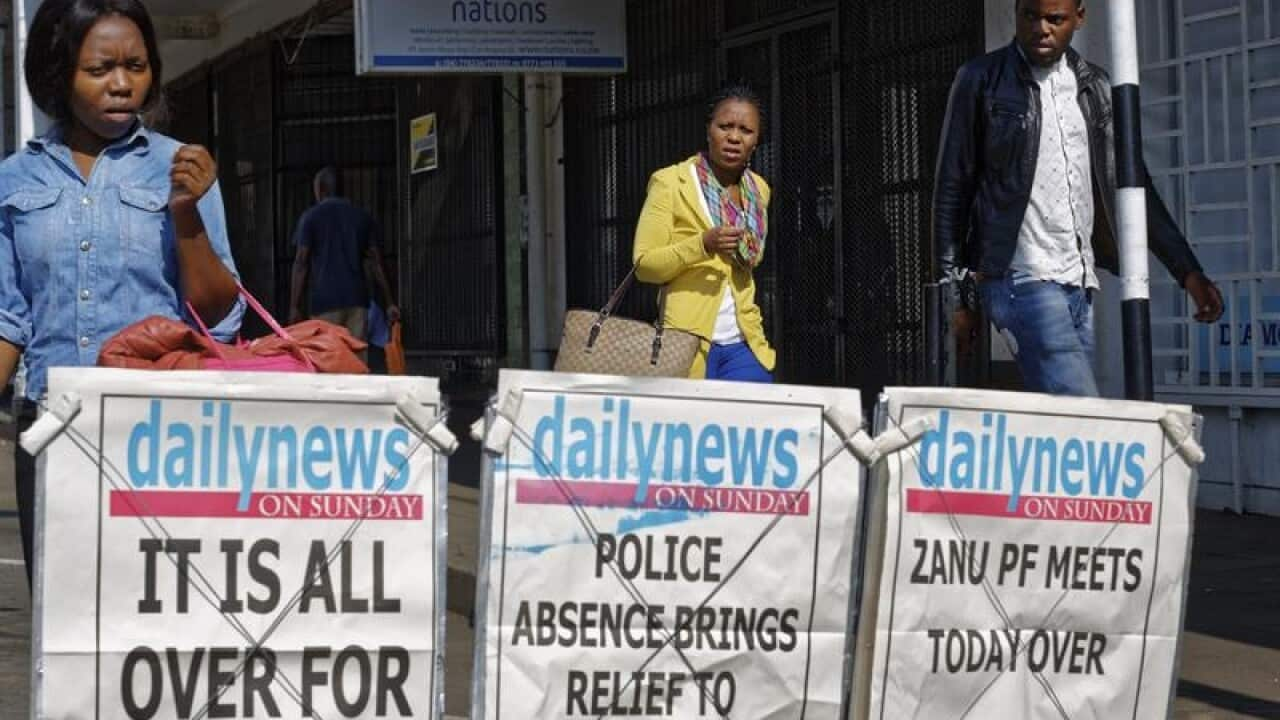Zimbabwe's longtime President Robert Mugabe, the world's oldest head of state at 93, is resisting stepping aside.
Placed under military house arrest amid fears he was positioning his wife to succeed him, warned by the ruling party's Central Committee to step aside or face impeachment, he had been expected to resign in a speech on Sunday night but defied expectations.
Here's a timeline of events:
1980: Mugabe named prime minister after independence elections
1982: Military action begins in Matabeleland against perceived uprising; government is accused of killing thousands of civilians
1987: Mugabe changes constitution and becomes president
1994: Mugabe receives honorary British knighthood
2000: Land seizures of white-owned farms begin, Western donors cut off aid
2005: United States calls Zimbabwe an "outpost of tyranny"
2008: Mugabe and opposition candidate Morgan Tsvangirai agree to share power after contested election, Britain's Queen Elizabeth annuls Mugabe's honorary knighthood
2011: Prime Minister Tsvangirai declares power-sharing a failure amid violence
2013: Mugabe wins seventh term, opposition alleges election fraud
2016: #ThisFlag protest movement emerges, independence war veterans turn on Mugabe, calling him "dictatorial"
2017: Mugabe begins campaigning for 2018 elections
Nov 6: Mugabe fires deputy Emmerson Mnangagwa, appearing to position first lady Grace Mugabe for vice president post
Nov 15: Army announces it has Mugabe and his wife in custody as military appears to take control
Nov 18: Tens of thousands of Zimbabweans march against Mugabe
Nov 19: Ruling party Central Committee tells Mugabe to resign as president by noon Monday or face impeachment. He addresses the nation but does not step aside

